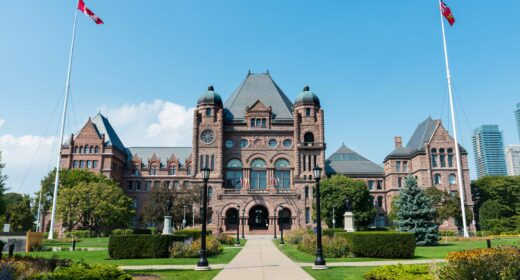A Calgary transit driver recently spoke with media, informing Calgary that he will refuse to drive a rainbow-wrapped bus – the ‘Pride bus’ – should he be assigned to it. The bus was displayed last month in support of the annual Calgary Pride Festival, and as a celebration of diversity and the LGBTQA community. (Earlier this summer, minor debate also ensued when Ottawa police wrapped a police car in rainbow decals for Ottawa’s Pride parade.) The driver in Calgary reportedly claims that as a Christian “there are things like homosexuality that [he] just can’t condone” and that “[the bus] is against [his] beliefs.” Calgary City management says that the driver never approached it about any concerns prior to speaking with the media, and Calgary Transit has reiterated that drivers can only refuse work based on safety issues.
Does the driver’s religious objection warrant accommodation in the workplace, and can he refuse to drive the Pride bus?
Freedom against discrimination as a result of a person’s religious beliefs is clearly covered by Canadian human rights codes. As well, the courts and arbitrators have recognized that religious diversity must be respected and that people should not be coerced to do something that violates their beliefs. While accommodating this driver’s views would be fairly uncomplicated (a short-term re-allocation of routes), the requirement to accommodate does not automatically flow from the driver’s refusal to drive the bus.
In the Supreme Court of Canada’s decision Syndicat Northcrest v. Amselm from 2004, the Court set out the factors to consider when deciding whether religious observance requires accommodation:
… claimants seeking to invoke the freedom of religion should not need to prove the objective validity of their beliefs in that the beliefs are objectively recognized as valid by other members of the same religion, nor is such an inquiry appropriate for the courts to make …
It is the religious or spiritual essence of an action, not any mandatory or perceived-as-mandatory nature of its observance, that attracts protection.
… the court’s role in assessing sincerity is intended only to ensure that a presently asserted religious belief is in good faith, neither fictitious nor capricious, and that it is not an artifice …
Assessment of sincerity is a question of fact that can be based on several non-exhaustive criteria. Including the credibility of a claimant’s testimony … as well as an analysis of whether the alleged belief is consistent with his or her other current religious practices. …
In essence, the driver’s views do not need to be shared by all Christians, or form a part of official dogma. There are, no doubt, many Christians (and others) who find his opinions extremely objectionable. However, the sincerity of the driver’s religious beliefs, and whether they are held in good faith, may be much more problematic for any accommodation request.
Courts have confirmed that religious freedom consists of the freedom to engage in practices (and, expectedly, to resist activities) that have a connection with the person’s religion. Freedom of religion is triggered when a claimant demonstrates that he or she sincerely believes in a practice or belief that has a nexus with religion. Once religious freedom is triggered, a court must then ascertain whether there has been non-trivial or non-insubstantial interference with the exercise of the implicated right so as to constitute an infringement of freedom of religion. It is likely questionable whether the act of driving a rainbow-wrapped bus intersects at all with the driver’s practice of his religion. If the act of driving the bus does not inhibit the practice or observance of his religion in a more than trivial way, then accommodation is not reasonably required. Simply put, freedom of religion cannot be used as a false cover for an individual’s otherwise intolerant views.
The Calgary Pride bus ran from August 31 until September 7, when the city’s Pride Parade was held.


